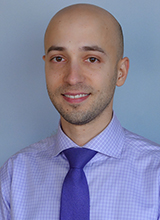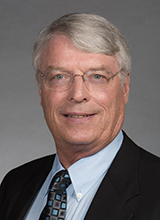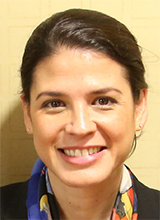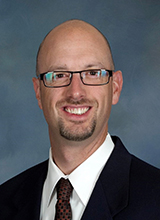
I am a child and adolescent psychiatrist at Seattle Children’s Hospital and faculty member at the University of Washington Medicine. My SCH practice locations include the Gender Clinic (Adolescent Medicine), Outpatient Psychiatry Clinic, Autism Center, and the inpatient unit- Psychiatry and Behavioral Medicine Unit (PBMU). I believe in delivering compassionate, evidence-based care in supporting patients and their families. My approach is both comprehensive and patient-centered, as it is important to consider the needs of the individual while also appreciating societal and cultural context. I specialize in working with diverse patient populations with various marginalized identities, such as those who identify as LGBTQ, gender diverse, and/or neurodiverse. I also work closely with the Adolescent Medicine Gender Clinic in supporting any mental health needs of transgender/gender diverse youth and their families. I also collaborate with colleagues in specialty medical clinics to coordinate care of medically complex patients. Additionally, I serve as a consultant with various school programs to support mental health initiatives and advocacy efforts.
Academically, I am involved with several initiatives both locally and nationally, particularly those that work to promote diversity and equity. I serve on committees supporting the SCH/UW CAP Fellowship Program, educating trainees and students through direct clinical supervision as well as with lectures and discussions. On a national level, I serve on the Sexual Orientation and Gender Identity Issues Committee (SOGIIC) for the American Academy of Child and Adolescent Psychiatry (AACAP). My clinical research focuses on finding strategies to better support the mental health and well-being of patients and families who are LGBTQ+. Additionally, I work on studies that explore the intersection between gender diversity and neuro diversity/autism spectrum.
Personal Statement
I am a Professor of Psychiatry and Director of the Addictions Division in the Department of Psychiatry and Behavioral Sciences at the University of Washington School of Medicine in Seattle, Washington. I am also the clinical director of addictions treatment services at Harborview Medical Center, and work in the psychiatric rehabilitation and recovery services.
I am board-certified in Psychiatry by the American Board of Psychiatry and Neurology with Added Qualifications in Addiction Psychiatry, and the American Board of Addiction Medicine. A Distinguished Fellow of the American Psychiatric Association and a Fellow of the American Society of Addiction Medicine, I am on the editorial board and a reviewer for several scientific journals and holds a number of research grants from the National Institute of Health.
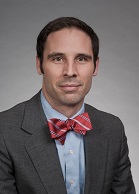
Personal Statement
My primary interest is on determining how behavioral technologies can be used to improve alcohol and drug abuse outcomes for those suffering from addiction health disparities. Behavioral technologies are non-talk therapy approaches to addiction treatment, such as motivational incentives where we provide rewards for people who abstain from or reduce their drinking. This low-cost, strength based approach to addiction can be implemented in low-resources settings by non clinicians. In fact, our group is investigating how smartphones might be used to implement this treatment, allowing us to reach the millions of individuals suffering from alcohol problems worldwide.
My second research interest in evaluating the accuracy of alcohol biomarkers in addiction treatment settings. These include alcohol urine tests, such as ethyl glucuronide (EtG) and mobile phone linked Bluetooth breathalyzers. These tools allow us to accurately assess the success of alcohol treatments, as well as provide valuable research tools.
Importantly all of my research studies are conducted in collaboration with two communities that suffer disproportionately high rates of alcohol and drug misuse, 1) adults with severe mental illnesses, like schizophrenia and bipolar disorder and 2) American Indians and Alaska Natives. My research team and I work closely with community partners who are providing addiction treatment to these populations with the goal of reducing the burden of alcohol and drug use in these communities.

Alysha Thompson, PhD is the Clinical Director and attending psychologist on the Psychiatry and Behavioral Medicine Unit at Seattle Children’s Hospital and Associate Professor in the Department of Psychiatry and Behavioral Sciences at University of Washington. Prior to joining the staff and faculty at Seattle Children’s/UW, she was a staff psychologist on the Adolescent Inpatient Unit at Bradley Hospital and Clinical Assistant Professor in the Department of Psychiatry and Human Behavior at Brown University. She is an active participant in training future psychiatrists and psychologists and currently serves as Chair-Elect of the Acute, Intensive, and Residential Services Special Interest Group of Division 53 of the American Psychological Association, a national group of psychologists.
Dr. Thompson has authored multiple publications regarding inpatient psychiatric treatment for youth and has forged collaborations with psychiatrists and psychologists working in inpatient psychiatry and acute care around the country. In addition, she is actively engaged in advocacy efforts regarding improvement the mental health care system for youth. She is passionate about providing quality services to youth experiencing severe mental health crises and has specific areas of expertise in working with youth with trauma histories and suicidality.
Dr. Thompson completed her graduate education at Suffolk University in Boston in clinical psychology with an emphasis in child and adolescent clinical psychology. She completed residency in pediatric psychology at Rush University Medical Center in Chicago and went on to complete a fellowship in clinical psychology with an emphasis in trauma in children and adolescents at the Trauma Center at Justice Resource Institute.

Personal Statement
I am a board certified psychiatrist and work at Fred Hutchinson Cancer Center. I am a Clinical Assistant Professor of Psychiatry and Behavioral Sciences at the University of Washington. I obtained a fellowship in consultation-liaison psychiatry, a specialty that focuses on providing psychiatric care for people with complex medical conditions. My primary clinical focus is people with cancer.
I love my work. Being ill is a vulnerable time and my goal is to ease suffering and provide a sense of connection and understanding for all I work with. I believe in working collaboratively with patients and families. We work together to identify what the goals of treatment are. I have expertise in diagnosis, psychopharmacology and psychotherapy and adapt my recommendations to best serve the goals of the person before me.
I am also passionate about education. I am the site director at Fred Hutch Cancer Center for our Psycho-oncology Fellowship Program. I supervise Cl fellows, addiction fellows, psychiatry residents and provide education to social workers and psychology trainees.
Personal Statement
My research aims to improve the public health impact of evidence-based behavioral health interventions for addressing comorbidities common among ethnoculturally diverse and underserved victims of trauma, including PTSD, depression, suicidal ideation, and risky substance use. I study the integration of behavioral interventions into general medical settings, with an emphasis on provider-centered training methods to support the delivery of patient-centered interventions. My current interest is in harnessing technologic innovations in machine learning and artificial intelligence, along with user-centered design, to enhance suicide prevention training scalability and sustainability. https://darnell.psychiatry.uw.edu/
I am a Professor in the Department of Psychiatry and Behavioral Sciences and I work as the Deputy Associate Chief of Staff for Mental Health at the VA Puget Sound Health Care System. I am a licensed clinical psychologist. My research is focused on studying mental health technologies to support Veterans, Service Members, their families, and the health care staff that treat them. I research mobile applications, virtual reality, virtual standardized patients, and other innovative approaches to improve mental health education and services. I have conducted DoD and VA funded research and focus on applied interventions that may have promise to make a difference in the lives of those we serve. I am an Army Veteran and current behavioral health officer in the Washington State Army National Guard.
Personal Statement
My work focuses on education and training in the areas of suicide prevention and suicide care. Particular interests include supporting clinicians who have experienced the loss of a patient to suicide and building knowledge among health care professionals about cultural aspects of firearm ownership and use.
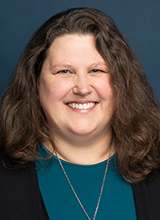
Personal Statement
My career goal is to give suicidal clients and their clinicians the best chance to succeed. I have been working in the area of health services, treatment development, and clinical trials research to prevent suicide for over 20 years. My graduate training was in community/clinical psychology and focused on achieving clinical ends through prevention and other systemic interventions in socio-culturally diverse populations. I have brought these perspectives into health services research. I have developed or adapted interventions to improve care and clinician willingness to work with suicidal patients including Caring Contacts, Dialectical Behavior Therapy (DBT), Collaborative Assessment and Management of Suicidality (CAMS), and Preventing Addiction Related Suicide (PARS). I have developed an adaptation of DBT, Accepting the Challenges of Employment and Self-Sufficiency (DBT-ACES), a program to assist psychiatrically disabled individuals find and maintain living wage employment. My research has been funded by NIMH, NIDA, the Department of Defense, American Foundation for Suicide Prevention, the Department of Veteran Health Affairs, and the State of Washington.
I am the director of the Center for Suicide Prevention and Recovery (CSPAR) whose mission is to promote the recovery of suicidal individuals and the effectiveness and well-being the clinicians and families who care for them by conducting rigorous and ecologically valid research, developing innovative interventions, improving policies, systems and environments of care, and providing expert training and consultation. CSPAR faculty and staff seek a deep understanding of the cultures and settings in which we work that leads to meaningful and effective interventions ready for implementation.
In addition to clinical research, I founded the Society for Implementation Research Collaboration (SIRC) and am the PI and Director of the Military Suicide Research Consortium Dissemination and Implementation core. These organizations focus on disseminating and implementing innovative, evidence-based interventions in the systems that need them. Beyond my research, I directed the Harborview Dialectical Behavior Therapy program at Harborview Medical Center 1996-2019, co-lead the UW DBT Training Program and have a long history of training and mentoring junior faculty, fellows, psychiatry residents, pre-doctoral psychology interns, undergraduate students, and post-baccalaureate trainees. I provide psychotherapy and consultation at the UWMC Outpatient Psychiatry Clinic.

